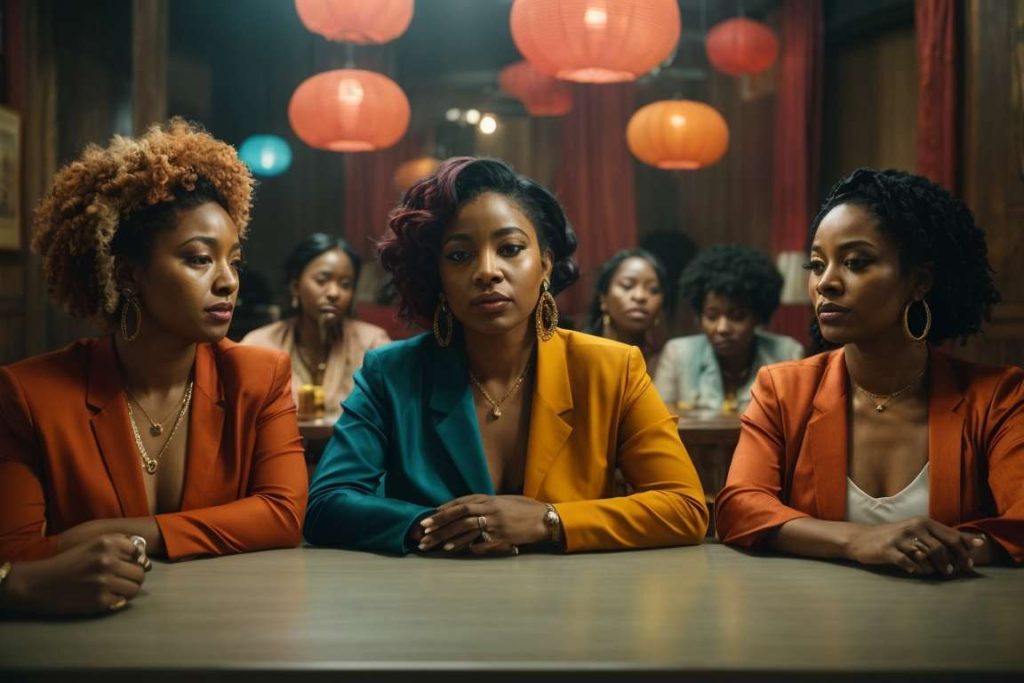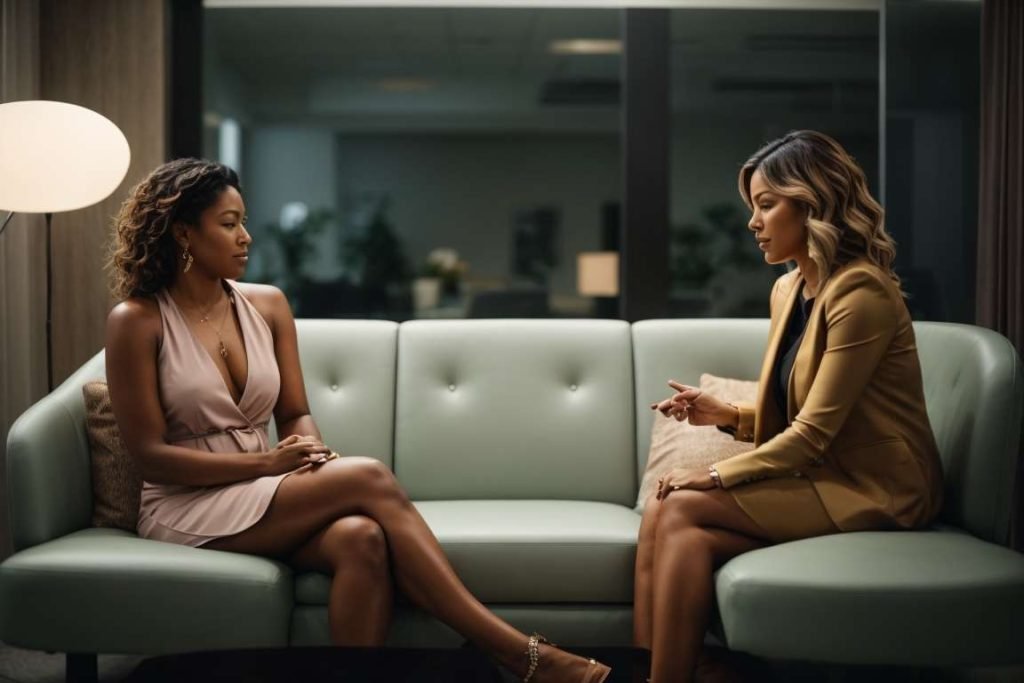Key Takeaways
- The importance of highlighting shared interests in a relationship.
- Understanding the source of tension in the relationship dynamics.
- Integrating social circles effectively and organically.
- Fostering clear and direct communication among involved parties.
- Utilizing healthy conflict resolution strategies to mitigate misunderstandings.
- Investing time and energy maintains the friendship and the relationship concurrently.
- Recognizing when to seek professional help.
- Ensuring to always value self-care and self-love.

It’s natural to want our significant other to blend seamlessly into every aspect of our lives. However, the reality can sometimes be quite different, leading to tension and misunderstanding.
This blog post seeks to address the challenges that can arise when your friends don’t get along with your partner and offers practical strategies for bridging the gap.
The Relationship Equation
Relationships, especially romantic ones, are intricate, complex, and multi-faceted. Bound by shared interests and mutual love, they also lay the groundwork for occasional conflicts and misunderstandings.
Deep-Digging into the Dynamics
Every relationship has its unique dynamics, which may sometimes lead to disagreements. It is, therefore, necessary to delve deeper and understand the root cause of conflicts.
Emotional baggage, past trauma, or mismatched expectations could all be contributing factors. Knowledge, they say is power, and understanding these dynamics could help you manage your relationships better.
Importance of Boundary Setting
Boundaries are vital to the overall health of a relationship. As much as you’d like for your friends to get along with him, there must also be respect for individual space. Breathing room often minimizes relationship pressure and the chance of drawing unwilling actors into an unwanted drama.
Fostering Shared Interests
Just as you have shared interests with your friends and your partner individually, finding or developing common ground between them might help bridge the gap. Shared experiences create lasting memories and also foster better understanding, reducing the chances of friction.
Effective Communication
Communication, as we all know, is the backbone of all relationships- be it friendships or romantic relationships.
The Role of Active Listening
Active and empathic listening is a main ingredient in clear and effective communication. Immediate reactions, snap judgements and hasty conclusions can often inflame misunderstandings rather than douse them.
Using ‘I’ Statements
‘I’ statements are a constructive way to address issues. Instead of blaming your friends or your partner, express how their actions or behavior made you feel. This reduces the other person’s defensiveness and opens up the possibility for empathetic understanding.
Overcoming Communication Barriers
Different communication styles, hormones, preconceived notions, or past experiences can interfere with effective communication. By identifying these barriers and working around them, open and honest dialogues can be nurtured.
Practical Strategies for Conflict Resolution
Conflict isn’t inherently a bad thing; it expresses differences and disturbances that need to be addressed.
- Create an environment where everyone feels safe expressing their feelings and thoughts.
- Listen to all sides before making any judgments or decisions.
- Use collaborative negotiation where everybody involved works towards a mutually satisfactory solution.
- Practice empathy, keep calm, and don’t let your emotions cloud your judgment.
- Allow for cooling-off periods if the conflict gets too heated.
- Seek mediation if the conflict is too grave to be resolved amongst yourselves.
Integrating Social Circles
Nurturing harmony between your social circle and your significant other could take a determined effort.
Inviting Dynamic Interactions
Involve everyone in activities that are enjoyable to all. Group activities can foster camaraderie, and allow your friends and your partner to understand each other better.
Cultivating Inclusive Conversations
When together, consciously steer clear of private jokes or shared memories that might exclude your partner. Similarly, be wary of monopolizing the conversation with topics that only suit you and your friends, making your partner feel alienated.
Valuing Individual Relationships
While you want your social circle and your partner to get along, it’s essential to remember that every relationship has its dynamism. Value individual relationships and spend quality time with each party separately, as fostering individual relationships often strengthens collective ones.
Recognizing When to Seek Help
Life isn’t a Hollywood movie and real relationships often require real work. Sometimes, even with your best efforts, the situation may wear you down emotionally.
- Learn to recognize signs of emotional stress like constant anxiety, panic attacks, or withdrawal from regular activities.
- Reach out to professionals like a relationship counselor or a psychological consultant.
- Remember, seeking help is not a sign of weakness but strength. It shows you’re willing to take care of your emotional and psychological well-being.
- If there’s a severe rift between your partner and friends, an intervention by a neutral party may provide insight or resolution.

When Self-Care becomes Paramount
A romantic relationship and friendships are significant parts of your life, but they shouldn’t overshadow you.
Valuing Self-Love
In the quest for perfect relationships, don’t neglect yourself. Self-love and self-care should always be at the top of your checklist. Understand that you’re an individual first, before being a partner or a friend.
Balancing Bonds
Juggling multiple relationships can be stressful, and if not handled well, it could take a toll on your mental health. Always maintain a balance between your love life and your social life. Never lose yourself in trying to make others happy.
Staying Firm on Your Ground
Yes, it’s vital to bridge the gap between friends and your partner, but not always at the cost of your happiness. If any of your relationships turn toxic, creating emotional and mental stress, it’s important to stand your ground and make a decision.
In Conclusion
Understanding relationship dynamics and maintaining a balance while ensuring open communication, respect for boundaries, shared interests, and proper conflict resolution, can greatly help in bridging the gap between your friends and your partner.
Sometimes, seeking external professional help becomes necessary. Amid all, self-love and self-care should never be compromised. Relationships are meant to delight, not to deplete.
Nourishing and sustaining a positive self-image is key to handling any relationship successfully, including the intricate situation when your friends don’t get along with him.
Frequently Asked Questions
Should I pick sides when my friends and partner have an argument?
Resist the urge to pick sides. Instead, try to provide a calm, neutral perspective and help them resolve their differences in a constructive manner.
My partner acts jealous when I spend time with friends. What do I do?
Ensure that you balance your time between your partner and your friends. Communication is key. Talk openly about his concerns and reassure them.
What if my friends dislike my partner out of jealousy or hidden objections?
Have a sincere discussion with your friends about their feelings. They may have valid concerns or they might be struggling with their own insecurities. Working this out might require time, patience, and honest conversations.

What if my friends and partner come outright saying they can’t stand each other?
In such extreme situations, it might be best to keep both relationships separate. Maintain these independently, and refrain from forcing these two parts of your life to mingle.
Can it ever reach the point where I have to choose one relationship over another?
While not desirable, there may be extreme instances where a choice might have to be made, especially if one relationship becomes threatening or abusive. Self-love and self-respect should always be your top priority.
Why is it so critical to my mental health to balance these relationships?
Everyone requires a balance of social interaction and intimate connection in life. Lopsided relationships can lead to stress and negative emotional outcomes.
How can professional help assist in such cases?
Professionals like counselors or psychologists can provide neutral perspectives, useful tools, and strategies to address and resolve such conflicts. They can also help you develop better communication and conflict-resolution skills.
What if my efforts to resolve the situation fail?
Remember that it’s not solely your responsibility to maintain peace. If your sincere efforts aren’t helping, consider seeking professional help or maintaining these relationships separately.

Meet Anna West! A connoisseur of all things stylish, Anna has an innate ability to weave the latest in fashion trends seamlessly into her writings. But her expertise doesn’t stop at fashion for modern women. Within the folds of her articles, you’ll also find a sprinkle of home decoration wisdom, a dash of pet care advice, and thoughtful insights on relationships. While fashion remains her forte, Anna’s multifaceted perspective ensures that her readers get a well-rounded dose of inspiration for various facets of life. Dive into Anna’s world, and discover a blend of style, elegance, and practical wisdom. Stay informed, inspired, and always in vogue with Anna West.
Reviewed By: Joanna Perez and Marcella Raskin
Edited By: Lenny Terra
Fact Checked By: Brenda Tillman
Photos Taken or Curated By: Matthew Mansour